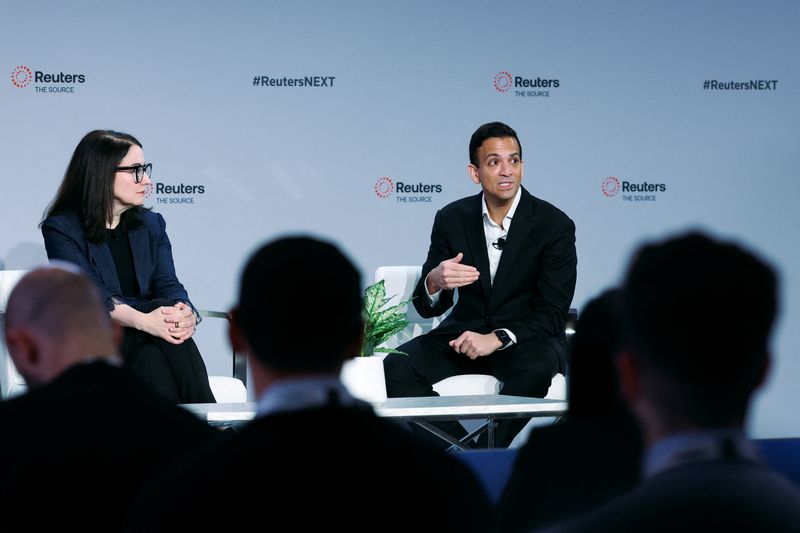Investing.com’s stocks of the week
By Michele Gershberg and Michael Erman
NEW YORK (Reuters) -Executives from Pfizer Inc (NYSE:PFE) and Amazon.com (NASDAQ:AMZN) see opportunities for working with U.S. health secretary nominee Robert F. Kennedy Jr to manage growing health risks in a warming world.
President-elect Donald Trump has called climate change a hoax and promised to again remove the U.S. from international climate cooperation.
Kennedy, an environmental lawyer tapped to oversee the nation's drugs regulator, public health and biomedical research agencies, takes a different view.
In an interview with Politico this year, he said he wants a climate policy that "makes sense to skeptics and activists alike." Kennedy has said he wants to tackle chronic illnesses and ultra-processed foods that make Americans sicker.
"Some of the comments he's made I'm really optimistic about," Amazon Pharmacy Chief Medical (TASE:PMCN) Officer Vin Gupta said during a panel discussion at the Reuters NEXT conference in New York on Wednesday, referring to Kennedy's positions on chronic disease, food safety and nutrition. "As a physician - if that's the focus - fantastic. We all want to work together."
Kennedy has also helped sow doubts about the safety and efficacy of vaccines that have been critical to curbing infectious disease.
A rise in global temperatures has accelerated catastrophic events, from tropical storms to wildfires and extreme heat waves.
The World Health Organization estimates that climate change will lead to 250,000 additional deaths per year between 2030 and 2050, from causes like heat stress, malaria, diarrhea and under-nutrition.
"We work across all parties in the United States," said Pfizer Chief Sustainability Officer Caroline Roan. "We're going to roll up our sleeves and we're going to find common ground. And I believe that's possible."
Roan said Pfizer would continue to foster the research that drives new vaccines and medicines, and ensure patients around the world can access them.
Gupta acknowledged that there is polarization within U.S. society around the need to address climate change.
"You say the word climate, and maybe half the country turns off or rolls their eyes," he said. "But if you talk about the health impacts of climate change, that actually polls incredibly well."
"People are willing to hear and receive the message across partisan lines on the ways in which air and ways in which dirty water might impact their health ... It's our ability to persuade and think through the message of health that's our greatest opportunity," he said.
To view the live broadcast of the World Stage go to the Reuters NEXT news page:
